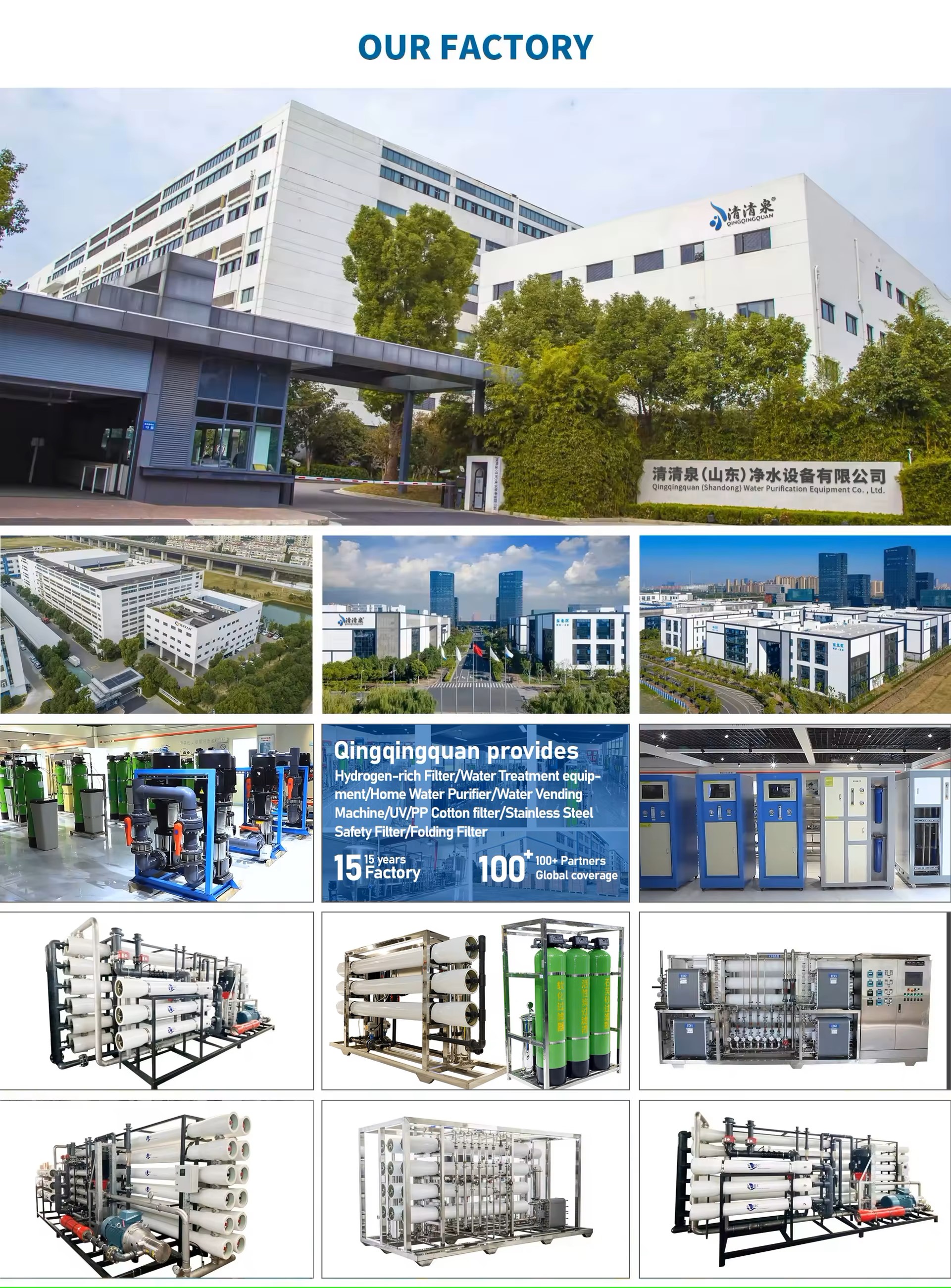
- Qingqingquan
- Shandong, China
- 20 days
- 300 units per month
Family farm water treatment technology: drinking water through the filter to remove impurities, activated carbon adsorption, with disinfection and sterilization; wastewater first precipitation, by microbial decomposition of harmful substances
Poultry Farms | Reverse Osmosis Water Treatment Systems
Reverse Osmosis System water treatment equipment poultry farm Role
Water treatment equipment plays a significant role in poultry farms. It can purify drinking water, remove impurities, germs and harmful substances, provide safe drinking water for poultry, reduce the risk of disease, and protect the healthy growth of poultry. At the same time, it can deal with breeding wastewater, remove the pollutants therein, realize standard discharge or recycling, reduce the pollution of the surrounding environment, and maintain a good ecological environment in the farm.
Importance of water in poultry farming
Water is the source of life for poultry, which is related to feeding, growth and metabolism. Poor water quality can cause disease, reduce the efficacy of medicine and damage the environment. Ensuring quality water supply is the key to poultry health, breeding efficiency and sustainable development.
Water treatment technology
There are a variety of water treatment technologies commonly used on poultry farms. Physically, filtration and sedimentation are used to remove suspended solids; chemically, ozone disinfection can efficiently kill germs, and electrochemical oxidation can deal with difficult-to-degrade pollutants. Biological treatment, anaerobic - aerobic joint treatment is effective, anaerobic phase degradation of organic matter, aerobic phase further purification. There are also natural treatment techniques, such as artificial wetlands, which utilize plants and microorganisms to purify water.
Advantages
The advantages of these technologies are obvious. They can effectively remove pollutants and ensure water quality safety; some of them are low-cost and suitable for the economic situation of farms; they can realize resource recycling, such as anaerobic treatment to produce biogas; and they can also reduce secondary pollution, maintain the ecological environment of the farm and its surroundings, and contribute to sustainable development.


Why choose our water treatment system?
1. Superior filtration technology
Multi-stage filtration system: Precisely removes sediment, particles and suspended solids.
Reverse osmosis (RO) technology: Thoroughly removes dissolved salts, heavy metals and other contaminants, providing ultrapure water.
Activated carbon filtration: Reduces chlorine, organic compounds and odor.
2. High efficiency and low maintenance
High flow design: Able to handle large water flow while maintaining excellent performance.
Long-lasting filter element: Durable filter media reduces replacement frequency and reduces operating costs.
Self-cleaning function: Reduces downtime and maintenance workload.
3. Smart and user-friendly
Real-time monitoring: Real-time monitoring of water quality and system performance through an intuitive interface.
Automated control: Automatically adjusts settings and sends alerts to ensure optimal operation.
Compact design: Saves space while providing maximum performance.

Frequently Asked Questions (FAQ)
1. Equipment Purchasing and Selection
Q: How to choose the right equipment for our factory?
A: Our team of experts will provide free consultation and recommend the most suitable equipment based on your needs (such as flow, water quality, purpose, etc.).
Q: Can the equipment be customized?
A: Yes, we can customize the equipment according to your specific needs, including processing capacity, material selection and degree of automation.
2. Installation and Operation
Q: How long does it take to install the equipment?
A: The installation time depends on the scale of the equipment and the site conditions, usually 1-2 weeks.
Q: Do you provide installation and commissioning services?
A: Yes, we provide professional installation and commissioning services to ensure the normal operation of the equipment.



































